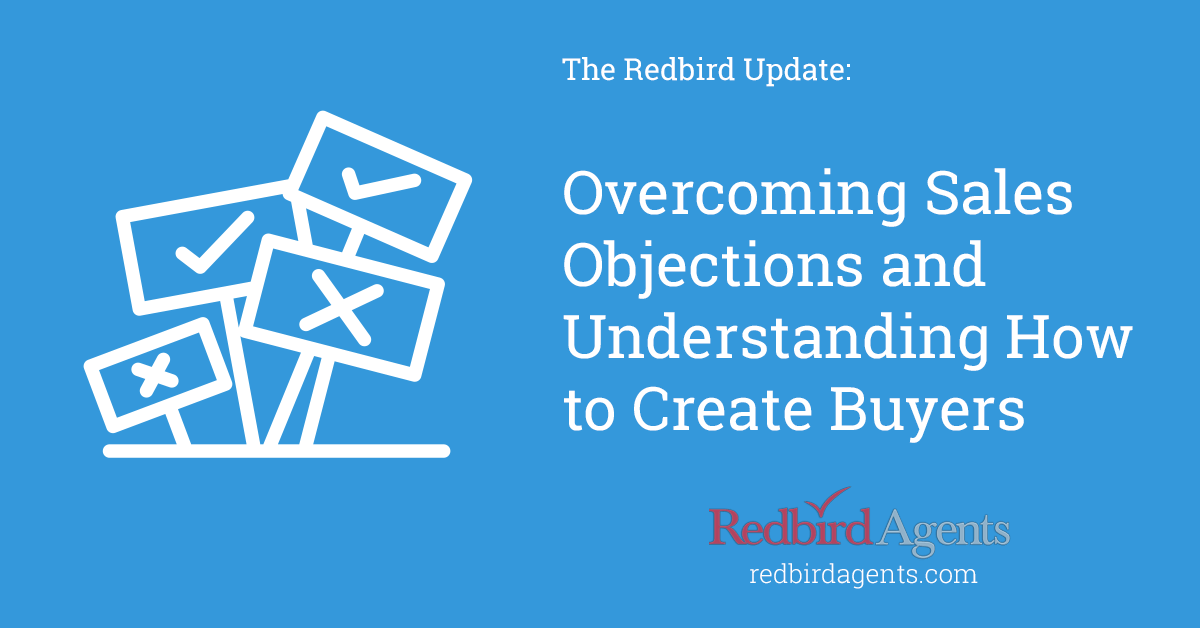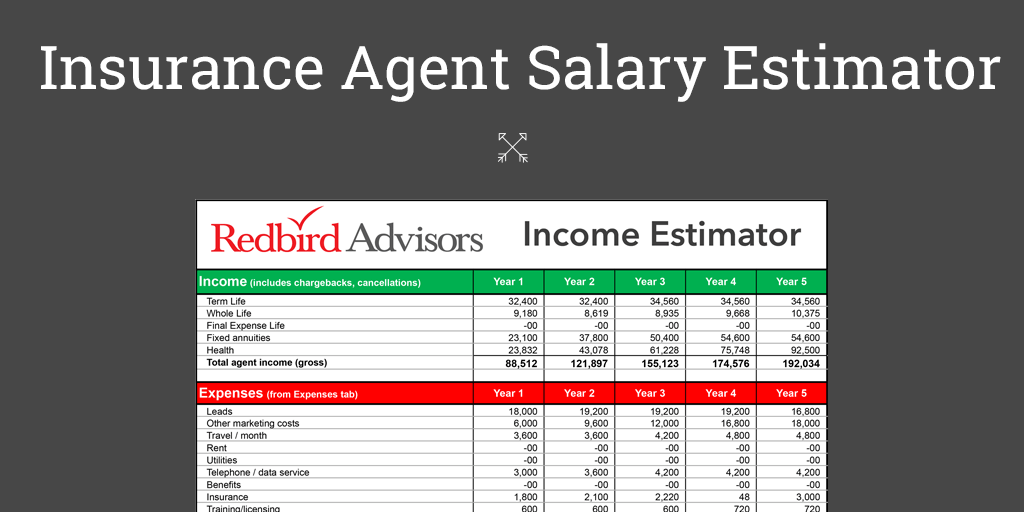
The art of overcoming objections in insurance sales is critical skill for you to master.
In any sales presentation, with rare exceptions, there are always going to be objections that keep you from making a sale. Some sales objections in insurance will come disguised as seemingly harmless questions; others might be more assertive push back.
In most cases, there will be no sale until the objections are removed, or better yet, prevented through the use of rebuttals.
You must recognize and address a variety of sales objections you will need to overcome before you can complete a successful insurance sales presentation. The sales objections discussed below are relevant to many of the insurance sales categories discussed throughout the site.
- Indexed Universal Life
- Medicare Supplements
- Accident Insurance
- Disability Insurance
- International Health Insurance
What is a sales objection?
A sales objection is anything that has the potential to derail a sale.
- Lack of understanding on the client’s part
- The client has not fully disclosed their situation to you
- You have not fully explained how your product can benefit them and their family
All of these can lead to doubts or a series of questions in their minds. Sales are lost all the time for these and many other reasons.
Understanding how sales objections manifest themselves
- The client has a money problem they failed to mention, and it’s showing up as an endless stream of questions disguised as objections (because they’re embarrassed they didn’t tell you).
- The client doesn’t understand the value of what you’re presenting (or, maybe you didn’t present it well enough).
- The client doesn’t want the life insurance you’re selling (and you didn’t pick up on the signals).
- Or, worst case, you lost control of the wheel and the meeting/call with the client spun into the ditch.
Clients are protective of their money and the only way you can convince them you should get some it is by being fully prepared to overcome sales objections.
To do that, you must be at the top of your mental game, your emotional game, and move forward with a high level of expertise.
Overcoming Sales Objections in Insurance is About Mindset
To be as successful as possible selling insurance, you must be in peak mental and emotional condition, and know your services offered inside and out. Part of the preparation for each of these foundational elements will include how you plan to respond to questions and objections verbally and non-verbally.
You must be disciplined and prepared in each of these areas so that you can meet the unique challenges each client will present to you.
Get Mentally Prepared to Win
Being mentally prepared means that you have put yourself in a positive frame of mind, that you are well rested, relaxed and confident that you can provide your client with a valuable product at a price they are comfortable with. Being confident means that you can answer any objections or questions that may come up at any point in the sales process without losing momentum.
Your mental preparation is also closely tied to your emotional state of mind. If you are not emotionally prepared, chances are you will react poorly when a client throws an objection at you.
If you are not equipped to respond calmly, you will quickly lose the sale. As part of your emotional preparation, you must get yourself into a place where you are upbeat, energetic, positive and understanding that objections are a natural and organic part of your sales process.
That may sound silly, but it’s true and it works. You have to leave your personal baggage at the door before going into any sales environment.
The best way you can be mentally prepared and emotionally ready to talk to a client is by achieving a high level of expertise regarding the products you are offering.
When you know your products cold and what options are available to clients, by extension you will know how to handle objections. Whether it is through previous experience, working with your team leader or through any number of other avenues, when you are an expert, you can control the sales call, and have a greater influence in the final outcome of your interactions with clients.
How Insurance Agents Get Mentally Prepared
You need to adopt the mindset of learning something new everyday. For example, Drew Hanlen is the #1 NBA Skills Coach in the world. When Drew was in high school, he showed up early every single day before school started and took 1000 shots. In his 4 years, he missed 4 days in total. That level of discipline helped him not only lead his high school to their winningest seasons in school history, but he did the same as a player at Belmont University.
How does this translate to sales?
You need to practice your game every single day with relentless accountability!
Below are things you can be doing on a daily basis to improve your mental strength to set yourself up for success when overcoming sales objections at the kitchen table.
- Identify your core carriers and become a master at their underwriting guidelines. Read the guides, call and ask the underwriters questions…Immerse yourself.
- Have weekly calls with your team and learn about the hurdles they faced and discuss how to improve.
- Join an online group and follow relevant discussions associated with your business model.
- Choose new continuing education topics to continually expand your knowledge.
- Follow the industry using google alerts. Google alerts is a great way to follow industry news. The more you know about your industry, the deeper the discussions you can have with your clients.
- Be relentless in your pursuit of learning something new everyday!
Overcoming Objections in Insurance Sales [by phone]
Learning to overcome insurance sales objections over the phone takes time in seat, and it’s important to remember one critical thing.
Setting appointments is one of the most important tasks for a life insurance agent! You need to learn to love the phone.
It is almost always conducted on the phone and brings with it a high degree of difficulty. As you’ve likely encountered, clients are more empowered on the phone versus in a face-to-face meeting.
Calls go south quickly if you can’t grab their attention.
The good news is there are only so many objections you can encounter, and many of them repeat over and over. So, if you have strategies in place for the most common objections, your ability to move the client along the sales funnel should be easier.
As part of your mental and emotional preparation, before you get on any calls, get your blood circulating by jumping up and down, swinging your arms, or taking a brisk walk.
You aren’t going to have a lot of time and you need to do everything you can to prepare before you make a call. Your energy level is critical. One of the best pieces of advice I ever got about phone sales was “smile when you’re on the phone because customers can tell.”
Let’s take a closer look.
Common Sales Objections Insurance Agents Face
Lets look at four of the most common sales objection insurance agents face when trying to set appointments and some associated rebuttals.
“Can you just mail me something?”
Every insurance sales person who has ever made even just a few phone calls has heard this one before. Here are a couple of rebuttals you can use.
When you are asked to just have something mailed, remind the prospect that there has already been a dialog through the mail with the interest card they returned to you, and that a short in-home visit of 10 to 15 minutes is generally the next step. Make the point that anything as important as discussing the long-term safety and protection of their family should be worthy of a 10 to 15-minute conversation.
You can also let them know that bringing documents out to them is the next step of the service you provide for all your clients, and then make it a matter of fact, “Do you want me to drop by Monday evening or Tuesday, or swing by early in the day or later in the evening.”
You cannot pause after asking these questions because it will give your prospect the opening to say “forget it” and hang up on you. Instead, move immediately to a closing strategy, keeping in mind your goal is to set the appointment.
“Just give me the insurance quote over the phone.”
When a prospect says to just give them a quote, try responding by saying (with a smile), “Sure, how much do you want it to be?”
More than likely you’ll be greeted with, “What do you mean?”
And the clincher response by you should be, “It means that you dictate how much you want to spend, not me.”
Chances are this will throw your prospect for a loop, but follow up quickly by saying that you tailor quotes to the individual needs of each client. And, the best way to understand those unique needs is by sitting down with them for 10 to 15 minutes.
Lock it in with, “Any time you are talking about something as important as protecting your family, it is worth a 10 to15 minute conversation, isn’t it? I’ll be seeing other good people in your neighborhood this week. Which night works better for you, Monday or Tuesday?”
“I’m no longer interested.”
When this happens, try to engage in a short dialog along the lines of: “I just have a couple of questions before I can close out your account. Are you no longer interested because you already looked at the information that was sent to you, and it wasn’t what you were expecting? Was it too expensive? Or, is it due to health concerns that you’re no longer interested?”
If it’s too expensive, let them know there are updates to life insurance products on a regular basis and that it may be in their best interests to see what is available.
“Many companies have made changes that have made policies more affordable. I think it would be helpful for you to see what we have versus what other companies have so you can do a comparison. And, whether we do that now or six months from now, you’ll already have it.”
Then attempt to set the appointment.
“I did fill out an interest card, but I don’t have time to talk right now.”
Normally, you respond by asking when would be a good time to speak.
But, a better strategy is to respond with: “I certainly don’t want to disrespect your time. Would you mind if I took just one minute to ask you a couple of questions?” Use that brief amount of time to better qualify them as a potential lead, making sure they still see the value in what you are offering. By putting them on common ground with you, both in terms of time and value, you leave the door open to get back to them at a later date when you can set an appointment.
Overcoming Objections in Insurance Sales [Face-to-Face]
When you land an appointment in a prospect’s home, don’t let your guard down regarding sales objections.
Overcoming Non-Verbal Sales Objections
This is one of the most important parts of sales.
You MUST set yourself up for success by preventing non-verbal sales objections. This happens by following some basic rebuttal rules.
- Dress the part. Don’t show up like you’re hanging out with friends. You are a professional, dress like it.
- Use an ID badge. It’s important to use an ID badge when selling in the field. People will see it from their windows and front door and immediately know you have a reason to be there.
- Smile, always smile.
- Do not play on your phone when parked in front of someone’s house. If you have an appointment at 2:00, your client is looking out the window waiting for you. If you have prep work to complete, do it around the block, but don’t sit in the car in front of their home.
- Always smile and wave at the home as soon as you get out of your car.
- Study non-verbal communication and learn to read your prospects body language.
Once you’ve made it to your appointment, you can focus on overcoming verbal sales objections. Here are some in-home sales objection rebuttals to consider:
“Is this life insurance?”
Our more experienced life insurance agents will periodically run into clients who have agreed to an in-home meeting, but when the agent arrives the client may have an instant case of amnesia. Sometimes clients are simply trying to establish who’s in charge. However, in the senior market it’s not unusual for clients to simply forget.
Regardless of why, here’s a way around that.
“If I can show you a way to protect your home and your family in the event one of you passes away, is that something you are interested in? I will show you how to do that today.”
Open them up a little bit. This allows you to then explain how life insurance can be used as a vehicle to get a family where they want to go. This may be about replacing lost income, letting kids still go to school and finish college, or any number of important life events.
“I want to talk to my kids first.”
You should welcome that as an option.
Think about it. First, most children will be interested in protecting their parents from unscrupulous sales people. Second, what child is going to find objections with being taken care of if a parent passes away?
Your best bet is to agree and push to get that next meeting as soon as possible.
“Great, let’s get them involved. Because the process can take some time, how about if today we get you pre-qualified, so that you can then be underwritten and approved. It will take a couple of weeks to get the policy in hand. Once in hand, by law you have a 30-day free look period (or whatever is applicable for your state). When I deliver the policy, have your kids join us. We can all go over it together and I can address any questions they may have. I would love to talk to your kids to educate them so that we can all make the best choice for your situation.”
Some agents may object to this strategy because it can lead to hiccups when children are involved, but generally what it leads to is more business coming from the kids.
“I need to think about it.”
“Perfect. I want you to think about it. Because the process takes some time, let’s get you your policy and you will still have plenty of time to think about it. It will be a couple of weeks until the policy arrives, followed by a free-look period. Keep in mind that you can’t really make a final decision until you have a policy in hand.”
“I want to shop around.”
Wholeheartedly agree with them. Tell them you want them to shop around, that you expect them to shop around. But then follow with…
“Please shop around, but in the meantime, let me get you pre-qualified, underwritten and approved. It’s what I do for everybody. It will take two to three weeks to get a policy in hand. And then you will have another 30 days for a final decision after that. If you find something during that time, apply for the other policy as well. Then let’s sit down side by side and compare apples to apples. That’s how confident I am that I will have the best policy for your situation. It’s what I do for all my clients.”
When you speak with that level of confidence and conviction, and tell them to compare, it is the last thing they expect you to do. And as a result, you will encounter very few objections.
Conclusion
Overcoming objections in insurance sales will never be something you learn once. As the industry evolves and new factors come into play such as insurance companies going direct to consumer, you need to always evolve and strengthen your core set of rebuttals.
Here are the takeaways for overcoming objections in insurance sales.
- It’s all about your mindset. Objections are part of the sales game, so you need to fully expect to get them and plan how you choose to respond.
- Address the objections before they become an issue. Addressing the common objections ahead of time will put your client at ease and will make for a smoother sales process.
- Listen. Always listen to your clients and give them enough time to tell you what they want. Many times insurance agents are in a rush to get to a close and if they just took a breath, they would likely eliminate the need to have to overcome any objections.
Continue learning from your mentors, attend training webinars, and network with other agents who are focused on continued learning. Doing this will keep you fresh and over time you’ll see less and less sales objections.


